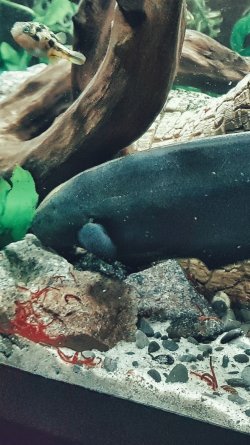Aisilence
New Member
- Joined
- Nov 19, 2018
- Messages
- 13
- Reaction score
- 2
Hey!
So I've read that any fish should have a variety of food in their diet to keep them healthy, including my BGK fish.
He is about 3 years old and was always eating just frozen blood worms. Anything else I put in my tank - he completely ignores it. I'm sure frozen blood worms are his favorite snack but I really want him to eat something else. I heard that they should eat green food sometimes since it's good for their digestion. But I tried cucumbers, pallets, flakes... he eats none of them. Maybe there is a way to trick him? I don't know, but I don't feel strong on him being dependant on only one food source. I don't see it as a healthy go.
Any tips and tricks?
So I've read that any fish should have a variety of food in their diet to keep them healthy, including my BGK fish.
He is about 3 years old and was always eating just frozen blood worms. Anything else I put in my tank - he completely ignores it. I'm sure frozen blood worms are his favorite snack but I really want him to eat something else. I heard that they should eat green food sometimes since it's good for their digestion. But I tried cucumbers, pallets, flakes... he eats none of them. Maybe there is a way to trick him? I don't know, but I don't feel strong on him being dependant on only one food source. I don't see it as a healthy go.
Any tips and tricks?




